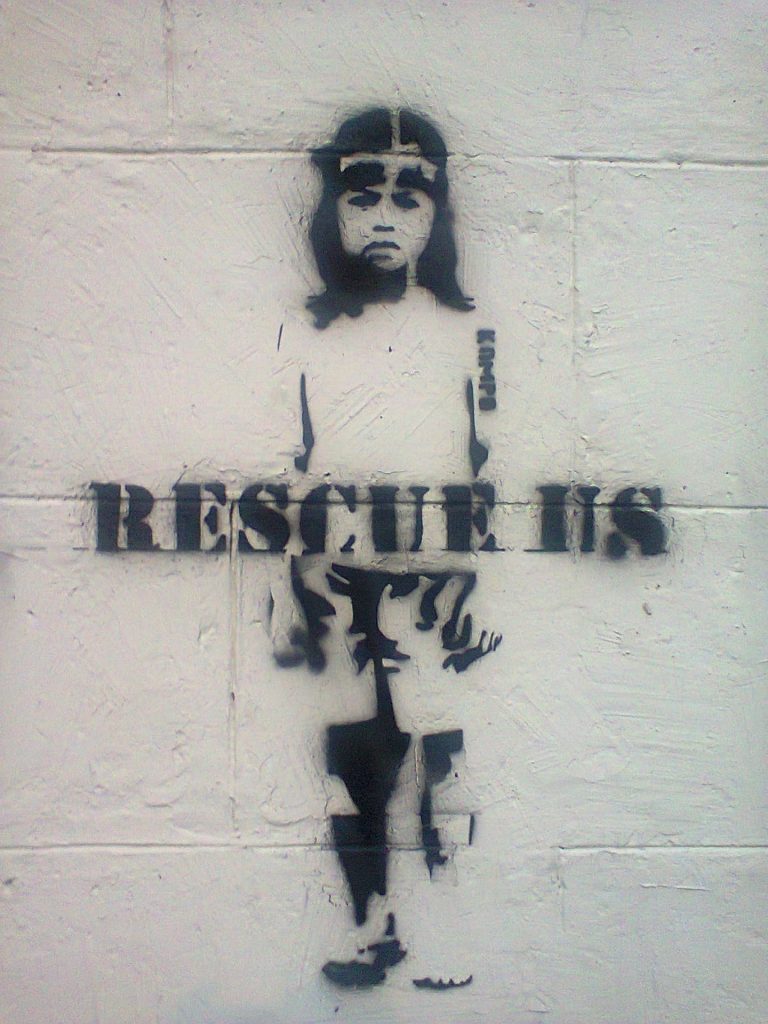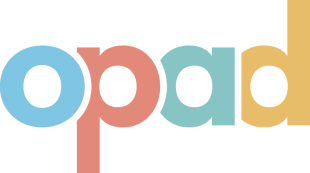CHILD PROTECTION
OPAD’s Child Protection Program seeks to protect minors from all forms of abuse, exploitation, neglect, and harm. The process is often a collaborative effort between governments, civil society organizations, communities, families, and individuals. In accordance with Article 19 of the UN Convention on the Rights of the Child,
The goals of OPAD’s Child Protection Program include:
1. Prevention: This strategies aimed at preventing children from coming into harm’s way by reducing risk factors such as poverty, also focusing on the empowerment of children to speak up and report abuse.
2. Identification: This involves identifying and reporting cases of child abuse or neglect to the relevant authorities.
3. Intervention: Here, safeguarding and support services are provided to children who have been maltreated or abused.
4. Advocacy: Advocating for policies and reforms that protect the rights and best interests of children, also raising awareness on various subjects like sexual behavior.
Children are cared for by OPAD through its Child Protection Program, which includes foster care, adoption, and emergency care services. Children are also protected by child-focused laws that provide legal frameworks and guidelines for safeguarding them from harm, abuse, and exploitation.


Child trafficking
OPAD opposes child trafficking, which is the illegal recruitment, transport, transfer, harboring, or receiving of children for exploitation. It constitutes modern slavery and is a serious violation of human rights.
The victims of child trafficking are often forced into commercial sexual exploitation, forced labor, child soldiers, street begging, or organ harvesting. Children are particularly vulnerable to trafficking due to their age, lack of education, poverty, and absence of parental care or protection.
Child trafficking is a global problem that affects millions of children every year. It takes place in both developing and developed countries, and the traffickers can be individuals or organized criminal networks. It is a complex issue that requires cooperation among governments, civil society organizations, and communities to prevent and combat this heinous crime.

Bullying and cyberbullying
Bullying and cyberbullying
Criminal exploitation refers to situations in which an individual, often a child or young person, is coerced or manipulated into carrying out criminal activities on behalf of someone else. This can include drug dealing, theft, and other forms of illegal activity. Criminal exploitation often involves gangs, which are groups of individuals who engage in criminal activity together.
Gangs use various methods to recruit vulnerable individuals, including children and young people, into their ranks. They may use intimidation, violence, or promises of money, status, or protection to lure individuals into criminal activity. Once recruited, gang members may be subjected to physical and emotional abuse, and may be required to carry out dangerous or illegal tasks.
Children and young people who are involved in gangs and criminal exploitation are at risk of harm, both physical and psychological. They may also be at risk of being arrested and facing criminal charges, which can have serious long-term consequences.
There are various measures in place to help prevent gang involvement and criminal exploitation. These include early intervention and support for vulnerable individuals, such as mentoring programs and access to education and employment opportunities. Law enforcement agencies also work to disrupt gang activity and prosecute those involved in criminal exploitation.
If you are concerned about criminal exploitation and gang activity in your community, you should report your concerns to the relevant authorities, such as the police or social services. They can provide support and advice on how to stay safe and prevent involvement in criminal activity.


Criminal exploitation and gangs
Criminal exploitation refers to situations in which an individual, often a child or young person, is coerced or manipulated into carrying out criminal activities on behalf of someone else. This can include drug dealing, theft, and other forms of illegal activity. Criminal exploitation often involves gangs, which are groups of individuals who engage in criminal activity together.
Gangs use various methods to recruit vulnerable individuals, including children and young people, into their ranks. They may use intimidation, violence, or promises of money, status, or protection to lure individuals into criminal activity. Once recruited, gang members may be subjected to physical and emotional abuse, and may be required to carry out dangerous or illegal tasks.
Children and young people who are involved in gangs and criminal exploitation are at risk of harm, both physical and psychological. They may also be at risk of being arrested and facing criminal charges, which can have serious long-term consequences.
There are various measures in place to help prevent gang involvement and criminal exploitation. These include early intervention and support for vulnerable individuals, such as mentoring programs and access to education and employment opportunities. Law enforcement agencies also work to disrupt gang activity and prosecute those involved in criminal exploitation.
If you are concerned about criminal exploitation and gang activity in your community, you should report your concerns to the relevant authorities, such as the police or social services. They can provide support and advice on how to stay safe and prevent involvement in criminal activity.
Domestic abuse
The mission of OPADs is to prevent domestic abuse, also known as domestic violence. This is a pattern of behavior in which one person in a relationship uses power and control to exert dominance over the other. Domestic abuse can occur in any type of intimate relationship, including between spouses, partners, family members, and housemates.
Domestic abuse can take many different forms, including physical violence, sexual assault, emotional abuse, financial abuse, and psychological abuse. It can involve the use of threats, intimidation, and manipulation to maintain control over the victim.
Domestic abuse has serious and long-lasting effects on the victim’s physical and mental health, as well as their ability to function in daily life. It is a crime and is punishable by law.
If you are experiencing domestic abuse, it is important to seek help and support. You can contact a domestic violence hotline or a local domestic violence shelter for assistance. You can also contact the police or your healthcare provider for help. It is important to develop a safety plan, which includes identifying a safe place to go and developing a plan for how to leave an abusive situation.
If you suspect that someone you know is experiencing domestic abuse, it is important to take action. You can offer support and encouragement, and provide information about resources available to help them. You can also report your concerns to the police or social services, who can provide assistance and support.

Emotional abuse
OPAD’s stand up against emotional abuse is a form of abuse in which one person uses words, actions or behaviors to control, manipulate, intimidate or belittle another person. Emotional abuse can occur in any type of relationship, including between romantic partners, family members, and friends. It can be difficult to recognize because it doesn’t leave physical scars, but it can have serious long-term effects on a person’s mental health and wellbeing.
Examples of emotional abuse include name-calling, insulting or humiliating remarks, threats, intimidation, isolating the person from family and friends, withholding affection, and controlling behavior. Emotional abuse can also include gaslighting, which is when the abuser denies or distorts the reality of the victim’s experiences.
Emotional abuse can lead to low self-esteem, anxiety, depression, and post-traumatic stress disorder. Victims of emotional abuse may feel trapped and helpless and may be hesitant to seek help or leave the relationship.
If you are experiencing emotional abuse, it is important to seek help and support. You can contact a domestic violence hotline or a mental health professional for assistance. It is also important to set boundaries and communicate your needs to the abuser. If you feel unsafe, it is important to develop a safety plan and consider leaving the relationship.
If you suspect that someone you know is experiencing emotional abuse, it is important to offer support and encouragement. You can provide information about resources available to help them, such as counseling or support groups. It is also important to listen without judgment and validate their experiences.
Female genital mutilation (FGM)
OPAD stands up against female genital mutilation (FGM) is a harmful traditional practice that involves the partial or total removal of external female genitalia or other injuries to the female genital organs for non-medical reasons. It is a form of gender-based violence and human rights violation that has no health benefits and can cause serious physical and psychological harm.
FGM is typically carried out on girls between infancy and age 15, but it can also be performed on adult women. The practice is often justified based on cultural or religious beliefs, but it is not endorsed by any major religious text.
FGM can cause a range of health problems, including severe pain, bleeding, infection, difficulty urinating, and complications during childbirth. It can also cause long-term psychological harm, such as post-traumatic stress disorder and depression.
FGM is illegal in many countries, including the United States, and is recognized internationally as a human rights violation. There are efforts to raise awareness about the harmful effects of FGM and to prevent its occurrence through education, community outreach, and legal action.
If you or someone you know has undergone FGM, it is important to seek medical attention and support. You can contact a healthcare provider or a local support organization for assistance. It is also important to report cases of FGM to the authorities, who can investigate and take action to prevent further harm.
Grooming
In its efforts to protect children, OPAD stands up against grooming. This refers to the process by which an individual builds a relationship with a child or young person for the purpose of sexually exploiting them. Grooming typically involves building trust, an emotional connection, and a sense of secrecy with the child or young person.
Grooming can take many different forms, including online grooming, in which an individual uses the internet or social media to communicate with a child or young person. Groomers may pretend to be someone else or use fake identities to gain the trust of the child or young person. They may also use gifts, flattery, or other forms of manipulation to build a relationship with the child or young person.
Grooming is a serious form of child sexual abuse and can have long-lasting effects on the victim’s physical and mental health. It is important to recognize the signs of grooming, which can include spending excessive time online, receiving gifts or money from an individual, and changes in behavior or mood.
If you suspect that a child or young person is being groomed, it is important to take action. You can report your concerns to the relevant authorities, such as the police or child protection services. You can also offer support and advice to the child or young person, and provide information about resources available to them, such as counseling or support groups.
It is also important to educate children and young people about the dangers of grooming and to teach them how to stay safe online. Parents and caregivers can monitor their children’s internet activity and set limits on their online use. It is important to have open and honest conversations with children and young people about sexuality and healthy relationships, and to encourage them to speak up if they feel uncomfortable or unsafe
Neglect
OPAD stands up against neglect in its fight to protect children. This refers to a failure to provide for a child’s basic needs, including food, shelter, medical care, and supervision. Neglect is a form of child abuse and can have serious long-term effects on a child’s physical, emotional, and cognitive development
Neglect can take many different forms, including physical neglect, in which a child’s basic needs for food, clothing, and shelter are not met, and medical neglect, in which a child’s medical needs are not addressed. Neglect can also include emotional neglect, in which a child’s emotional needs for love, affection, and attention are not met, and educational neglect, in which a child’s educational needs are not addressed.
Neglect can be intentional or unintentional, and it can occur in any type of family, regardless of socioeconomic status or other factors. Neglect can also occur in institutional settings, such as orphanages or foster care.
Neglect can have serious consequences for a child’s health and wellbeing, including malnutrition, poor physical health, developmental delays, and mental health problems. Children who experience neglect may also be at increased risk of other forms of abuse and may struggle with trust and attachment issues.
If you suspect that a child is being neglected, it is important to report your concerns to the relevant authorities, such as child protective services. You can also offer support and assistance to the child and their family, and provide information about resources available to them, such as counseling or financial assistance.
Preventing neglect requires a community-wide effort, including education and outreach to parents and caregivers about the importance of meeting a child’s basic needs, and support for families in crisis. It is important to promote policies and programs that address the root causes of neglect, such as poverty, substance abuse, and mental health issues
Online abuse
On the other hand, OPAD stands against online abuse, which refers to any type of harmful or offensive behavior that is directed at an individual or group through digital communication channels, such as social media, messaging apps, email, or social media forums. Online abuse can take many different forms, including cyberbullying, harassment, hate speech, and internet grooming.
Cyberbullying involves the use of digital technologies to bully, intimidate, or harass another person, typically a child or young person. Cyberbullying can include sending threatening or abusive messages, spreading rumors or lies, or sharing embarrassing or inappropriate images or videos.
Harassment refers to any type of behavior that is intended to cause distress or alarm to another person, and can include unwanted or threatening messages or comments, stalking, or sharing personal information without consent.
Hate speech refers to any form of expression that promotes discrimination, hatred, or violence against an individual or group based on their race, religion, gender identity, sexual orientation, or other characteristics.
Online grooming involves building a relationship with a child or young person through digital communication channels for the purpose of sexually exploiting them.
Online abuse can have serious negative impacts on an individual’s mental health and wellbeing, including anxiety, depression, and low self-esteem. It can also lead to social isolation, physical harm, and even suicide.
To address online abuse, it is important to educate individuals about responsible online behavior and to promote respectful and inclusive online communities. It is also important to have clear policies and laws that prohibit online abuse and to provide support and resources for victims of online abuse. Reporting online abuse to the relevant authorities, such as the police or internet service providers, can also help to prevent further harm.
Sexual abuse
The OPAD opposes sexual abuse, which refers to any abusive activity that involves a child or young person who is unable to give informed consent. It also involves the use of force, coercion, or manipulation. Sexual abuse can take many different forms, including sexual assault, rape, incest, and sexual exploitation.
Sexual abuse can have serious long-term effects on a child’s physical and mental health. Victims of sexual abuse may experience a range of emotional and psychological problems, including depression, anxiety, post-traumatic stress disorder (PTSD), and suicidal thoughts.
It is important to recognize the signs of sexual abuse, which can include changes in behavior or mood, sexualized behavior or language that is inappropriate for their age, and physical signs of injury or trauma.
If you suspect that a child or young person is being sexually abused, it is important to take action. You can report your concerns to the relevant authorities, such as child protective services or the police. It is important to provide support and assistance to the child or young person, and to provide information about resources available to them, such as counseling or support groups.
Preventing sexual abuse requires a community-wide effort. It is important to educate children and young people about their rights, and to provide age-appropriate information about sexuality and healthy relationships. Parents and caregivers can also monitor their children’s online activity and set limits on their internet use. It is important to have open and honest conversations with children and young people about sexuality and healthy relationships, and to encourage them to speak up if they feel uncomfortable or unsafe. It is also important to promote policies and programs that address the root causes of sexual abuse, such as gender inequality, poverty, and social norms that tolerate or condone violence against women and children.

